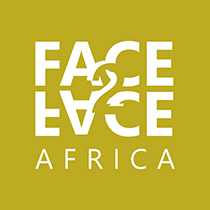They say, “If you empower women, you can change the world”. Therefore, it’s high time Africans, especially leaders, started thinking about empowering women on the continent. From the few African women who have already ventured into the world of business, it is evident that African women are entrepreneurial by nature.
From Louisa Kinoshi of Beauty Rev to Imoteda Aladekomo of Heels In the Kitchen, African women are extending their horizons in business in a bid to better their lives and those of their families. But even as they strive to excel in business, they have to grapple with numerous challenges, some of which are unique to them.
For instance, women entrepreneurs have to deal with the problem of lack of capital. Generally, businesses in Africa lack financial support, with women entrepreneurs bearing the greatest brunt. Studies have shown that women entrepreneurs often find it difficult to access credit than their male counterparts, particularly in Africa where accessing credit is usually similar to having a nightmare.
According to a recent study by the African Development Bank (AFDB), the funding gap for women entrepreneurs in sub-Saharan Africa is more than $20 billion, with younger women being the most affected. The study further shows that only 30 percent of women in the region have bank accounts, which are a prerequisite for accessing credit.
Many businesswomen in Africa argue that governments and financial institutions have made it difficult for them to access credit because they always fund them based on their track records and not on their potential. For men, accessing capital is quite easy provided they have a bank account and good credit history.
Secondly, women entrepreneurs in Africa lack mentorship. Until recently, it was almost impossible to find an all-female support group in Africa assisting women entrepreneurs to succeed in business. And even now, very few support groups are dedicated to giving budding female entrepreneurs the needed advice and support.
Experts say it’s a lot easier for upcoming male entrepreneurs in Africa to find a male business mentor who relates with them than it is for their female counterparts. This is largely because most business fields on the continent are dominated by men. Women also argue that it is easier for established male business leaders to see themselves in young male entrepreneurs than their female counterparts.
Also, there is the self-limiting factor. Most women entrepreneurs doubt themselves and their business ideas. Studies have shown that women across the world generally don’t like to fail. Therefore, they are scared of venturing into businesses whose outcomes they are not sure about.
A great deal of this fear stems from a woman’s childhood, since most African girls are raised to be submissive. This makes them shy away from exploring their full potential. And because Africa is still a patriarchal society, very few successful women entrepreneurs on the continent are celebrated. What’s worse, some African communities discourage women from running their own businesses, arguing that it is a “men’s thing”.
Even when a woman gathers enough courage to start her own business, she has to deal with regular instances of not being taken seriously, being treated with disrespect, and not being paid her rightful dues.
Basically, women entrepreneurs in Africa are always at a disadvantage, which perhaps explains why Africa is lagging behind in terms of economic growth. African governments, business leaders, parents and all other stakeholders must therefore realize that “if you empower women, you can change the world”.




